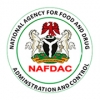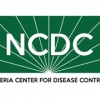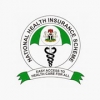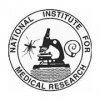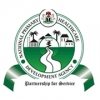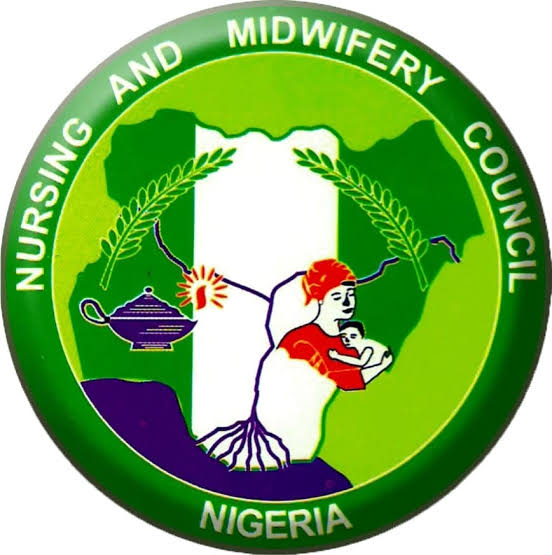Department of Family Health
The Department of Family Health was created from the Department of Community Development and Population Activities in July 2008. The Department plays a prominent and pivotal role in contributing to the improvement of the health indices of the country as well as the achievement of the Health related Sustainable Development Goals (SDGs). Specifically, the Department has a crucial role in actualising Goal 3 of the Sustainable Development Goals by 2030. The Department acvhieves this through the Nigeria MPDSR Platform
Mission
The Mission of the Department is “to develop and coordinate the implementation of policies and programmes that promote the health of the family through efficient integrated health services in Nigeria”.
Mandate
- The Department is responsible for development of policyand implementation framework on maternal, newborn , child and adolescent
- Co-ordination and provision of technical assistance to States and Local Governments on the implementation of Family Health
- Supply of reproductive health commodities to States and Local
- Implementation of Integrated Supportive Supervision of Family Health programmes nationwide.
Core Departmental Functions
The Family Health Department’s core functions include:
- Effective coordination of Nutrition, Reproductive, Maternal, Neonatal and Child Health, Gender, Adolescent Health Development, School Health, Elderly Care and Wellbeing that proactively contribute to overall family health in Nigeria.
- Collaboration with all Departments within the Federal Ministry of Health, line Ministries and Development Partners as well as other relevant stakeholders to promote quality services and empower individuals and communities to make informed decisions about their health, thereby promoting healthy lifestyles and enhanced quality of life of Nigerians.
DIVISIONS IN THE DEPARTMENT
The Department consists of five Divisions namely:
- Child Health Division
- Gender, Adolescent School Health and Elderly Care (GASHE) Division
- Health Promotion Division
- Nutrition Division
- Reproductive Health Division
CHILD HEALTH DIVISION
The Child Health Division is made up of three branches
- Child Survival;
- Newborn Care
- Maternal Newborn and Child Health Coordination/Programme Management
The functions of the Division covering all the branches are as listed below:
- Focal point on issues concerning the health and total well-being of the Nigerian child;
- Provision of policy direction as well as formulation of policies and guidelines on issues pertaining to the health of the Nigerian Child;
- Coordination of all programmes and activities related to Child health;
- Coordination of all programmes and activities of the National Partnership for Maternal, Newborn and Child Health secretariat;
- Coordination of the meetings of the Core Technical Committee (CTC) for Maternal, Newborn and Child Health
- To ensure implementation of recommended action points of CTC;
- To ensure implementation of Integrated Maternal, Newborn and Child Health (IMNCH) policy strategy at the State level in accordance with the National guidelines;
- Focal point between the Federal Ministry of Health and State Ministries of Health on the implementation of the IMNCH Strategy;
- Development of proposal and budget action plans related to child health as well as IMNCH
- Provision of technical support to State Ministries of Health/State IMNCH focal persons on issues pertaining to Maternal and Child health;
- Sensitization of State Commissioners of Health, LGA Chairman and opinion leaders in the community/community-based organizations on Maternal, Newborn and Child health matters;
- Development and institutionalisation of Supervision, Monitoring and Evaluation systems for implementation of Maternal and Child Health interventions at the State level;
- Performance of any other functions assigned by the Honourable Minister of Health through the Head of Department.
GENDER, ADOLESCENT SCHOOL HEALTH AND ELDERLY CARE (GASHE) DIVISION
The GASHE Division is made up of three branches viz:
- Adolescent/ School Health
- Care of the Elderly
- Gender and Female Genital Mutilation Control
The functions of the Division covering all the branches include:
- Provision of Leadership for programmes in Gender, Adolescent School Health and Elderly Care
- Coordination of Activities in Gender, Adolescent School Health and Elderly Care Programmes;
- Management of Resources for Gender, Adolescent/School Health and Elderly Care Programmes;
- Performance of other functions assigned by the Honourable Minister of Health through the Head of Department.
REPRODUCTIVE HEALTH DIVISION
The Reproductive Health Division is made up of three branches viz;
- Safe Motherhood;
- Family Planning Services and Logistics
- Vesico-Vagina Fistula Control Programme
The functions of the Division covering all the three branches are as listed below:
a) Safe Motherhood Branch
Mandate: Improvement of Maternal and Newborn Health with reduction in maternal mortality ratio through ensuring skilled attendance at birth, provision of equipment, Midwifery and Mama Kits among others.
Functions:
- Development of training manuals on life Saving Skills for Doctors, Midwives and Community Health Extension Workers
- Development and printing of National Guidelines on Maternal and Newborn Health
- Development and printing of Information Education and Communication materials relating to Maternal and Newborn Health
- Development of protocols on Essential Obstetric Services
- Development of Job aids on Safe Motherhood
- Working in Partnership with Development Partners on Safe Motherhood Projects in Nigeria–WHO, UNFPA, IPAs, Pathfinder International, CEDPA, MacArthur Foundation, Venture Strategies for Health Development & IPAs.
- Monitoring and Supervision of Safe Motherhood Programs in the country.
b). Family Planning Branch
Mandate: To ensure the availability of contraceptive commodities for provision of quality Family Planning Services at all levels of Healthcare delivery for the purpose of Family planning/child birth spacing and prevention of sexually transmitted infections.
Functions
- Training of Clinical Service Providers on Modern Methods of Family Planning
- Development and Review of Training Manuals, Guidelines and Protocols on Family Planning Services;
- Production of Information Education Communication/Behaviour Change Communication materials on Family Planning
- Work in Partnership with Development Partners on Family Planning projects in Nigeria- World Health Organisation (WHO) , United Nations Populations Fund (UNFPA), Society for Family Health (SFH), Family Health International (FHI), Association for Reproductive and Family Health (ARFH), Nigerian Urban Reproductive Health Initiative (NUHRI), Department for International Development (DfID), United States Agency for International Development (USAID), John Snow Incorporated/Deliver Project, Bayer Pharma & Merck Sharpe among others
- Forecasting and procurement of Family Planning Commodities.
- Mobilization of resources for the procurement of contraceptive commodities using UNFPA facilities.
- Distribution of procured commodities to the 36 states of the federation and Federal Capital Territory, Abuja.
- Building the capacity of implementers on the Contraceptive Logistics Management System (CLMS).
- Coordination of State implementers on Family planning.
- Monitoring and evaluation of the National Family Planning Programs in the states
c). Vesico-Vaginal Fistula Control Branch
Functions:
- Co-ordination of Vesico-Vagina Fistula Control activities in existing VVF centers through facility supportive supervision.
- Co-ordination of the Partners and other Stakeholders involved in the VVF prevention and management.
- Holding National Technical Working Group Meetings.
- Organising International Day Activity to end Fistula.
- Monitoring and evaluation of VVF activities across the country.
- Training of Doctors, Nurses and Medical Personnel’s on the management of VVF.
- Organizing mass repair of VVF cases across the country.
HEALTH PROMOTION DIVISION
The Health Promotion Division is made up of three branches viz;
- Health Education ;
- Service Improvement;
- Advocacy/ Behaviour Change Communication Materials Development;
The functions of the Division covering all the three branches are as listed below:
- Development of Healthy Public Policies;
- Creation of supportive environments for health;
- Strengthening of community action for health;
- Capacity building for best Health Promotion practices;
- Re-orientation of health service providers;
- Development of Health Promotion Behaviour Change Communication (BCC) Materials;
- Public enlightenment and awareness creation/campaigns on public health issues.
NUTRITION DIVISION
The Nutrition Division is made up of three branches viz;
- Micronutrient Deficiency Control
- Monitoring and Evaluation/Nutrition Information and Surveillance System (M & E NISS)
- Infant and Young Child Feeding
The activities of the Nutrition Division are based on the National Nutrition Policy/Programme having an overall objective to improve and sustain the nutritional status of Nigerians and combat the problem of nutrient deficiencies especially Micronutrient Deficiencies and Protein Energy Malnutrition.
The functions of the division covering all the three divisions include:
- Provision of leadership for programmes in Nutrition, Infant & Young Child Feeding, Micronutrient Deficiencies Control and M & E/NISS;
- Coordination of Activities in Nutrition Programmes;
- Management of Resources for Nutrition Programmes;
- Collaboration with Partners in the development and Implementation of Nutrition Programmes;
- Policy Formulation on Nutrition related matters;
- Provision of guidelines for service delivery;
- Advocacy, Information, Education, and Communication;
- Capacity Building (Training);
- Monitoring, Supervision and Evaluation;
- Carry out other functions assigned by the Honourable Minister of Health through the Head of Department;
- The Head of Division is the Country Focal Point for Scaling Up Nutrition (SUN) Movement in Nigeria
SAVING ONE MILLION LIVES PROGRAMME FOR RESULTS (SOML P for R).
The SOML P for R is a government program launched in 2012 which aims to change the focus on inputs (such as drugs, health facilities, hiring more healthy workers) to results for beneficiaries. The program (supported by a $500 million credit from the World Bank that became effective in late May 2015 rewards states with unified fiscal transfers from the Federal Government when they achieve improvements in the coverage and quality of key Maternal and Child Health (MCH) services as measured by independent household and health facility surveys.
Functions
- Coordination and provision of Technical Support to State Ministries of Health.
- Timely collection of data and its publication.
- Implementing and overseeing the disbursements of funds to States.
- Facilitating the disbursement of funds to the States.
